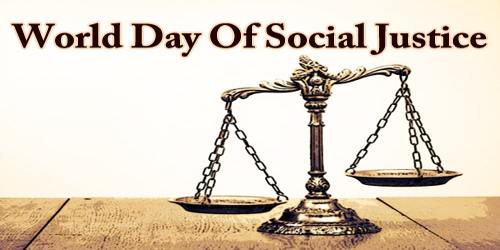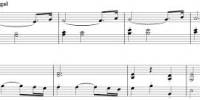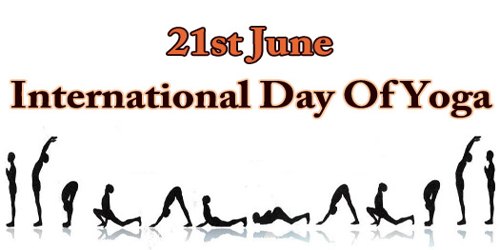The World Day of Social Justice (Social Justice Equality Day) is a global observance and not a public holiday. It is an international day recognizing the need to promote social justice, which includes efforts to tackle issues such as poverty, exclusion, gender equality, unemployment, human rights, and social protections. Many organizations, including the UN, American Library Association (ALA), and the International Labor Organization, make statements on the importance of social justice for people. Many organizations also present plans for greater social justice by tackling poverty, social and economic exclusion, and unemployment. The United Nations General Assembly has decided to observe 20 February annually, approved on 26th November 2007 and starting in 2009, as the World Day of Social Justice. The Declaration focuses on guaranteeing fair outcomes for all through employment, social protection, social dialogue, and fundamental principles and rights.
The International Labor Organization unanimously adopted the ILO Declaration on Social Justice for a Fair Globalization on 10th June 2008. This is the third major statement of principles and policies adopted by the International Labour Conference since the ILO’s Constitution of 1919. It builds on the Philadelphia Declaration of 1944 and the Declaration on Fundamental Principles and Rights at Work of 1998. The 2008 Declaration expresses the contemporary vision of the ILO’s mandate in the era of globalization.
This landmark Declaration is a powerful reaffirmation of ILO values. It is the outcome of tripartite consultations that started in the wake of the Report of the World Commission on the Social Dimension of Globalization. By adopting this text, the representatives of governments, employers’ and workers’ organizations from 182 member States emphasize the key role of our tripartite Organization in helping to achieve progress and social justice in the context of globalization. Together, they commit to enhance the ILO’s capacity to advance these goals, through the Decent Work Agenda. The Declaration institutionalizes the Decent Work concept developed by the ILO since 1999, placing it at the core of the Organization’s policies to reach its constitutional objectives.
The Declaration comes at a crucial political moment, reflecting the wide consensus on the need for a strong social dimension to globalization in achieving improved and fair outcomes for all. It constitutes a compass for the promotion of fair globalization based on decent work, as well as a practical tool to accelerate progress in the implementation of the Decent Work Agenda at the country level. It also reflects a productive outlook by highlighting the importance of sustainable enterprises in creating greater employment and income opportunities for all.
The General Assembly recognizes that social development and social justice are indispensable for the achievement and maintenance of peace and security within and among nations and that, in turn, social development and social justice cannot be attained in the absence of peace and security, or in the absence of respect for all human rights and fundamental freedoms.
It further recognizes that globalization and interdependence are opening new opportunities through trade, investment, and capital flows and advances in technology, including information technology, for the growth of the world economy and the development and improvement of living standards around the world, while at the same time there remain serious challenges, including serious financial crises, insecurity, poverty, exclusion, and inequality within and among societies, and considerable obstacles to further integration and full participation in the global economy for developing countries, as well as some countries with economies in transition.
On 26th November 2007, the General Assembly declared that starting from the sixty-third session of the General Assembly, 20 February will be celebrated annually as the World Day of Social Justice.
Many organizations, including the UN and the International Labor Office, make statements on the importance of social justice for people. Many organizations also present plans for greater social justice by tackling poverty, social and economic exclusion, and unemployment. Trade unions and campaign groups are invited to call on their members and supporters to mark the day. The Russian General Confederation of Trade Unions declared that the common slogan would be “Social Justice and Decent Life for All!”
Schools, colleges, and universities may prepare special activities for the day or plan a week of events around a theme related to poverty, social and economic exclusion or unemployment. Different media, including radio and television stations, newspapers, and Internet sites, may give attention to the issues around the World Day of Social Justice.
Ideal topics for teaching students about the need for social justice include (but are not limited to) childhood poverty, global citizenship, human rights, and sustainable development. A series of lessons are available by country with the United Nations and other programs. Oxfam’s food for thought PowerPoint which shows students the global food system that then has the opportunity for students to share their thoughts and experiences. The lesson plans and collections available are for students of all ages.
It is hoped that particular coverage is given to the links between the illicit trade in diamonds and armed conflicts, particularly in Africa, and the importance of the International Criminal Court. This is an independent court that conducts trials of people accused of genocide, crimes against humanity, and war crimes.
Information Sources:
















